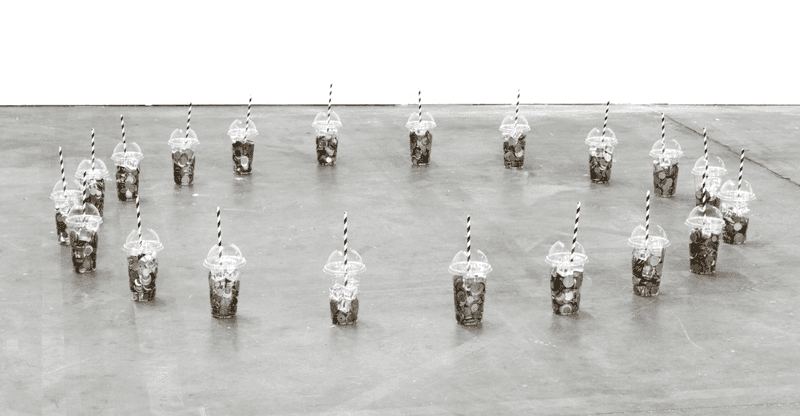

On 7 November 1917, men and women with calloused hands, tired bodies, and empty bellies seized power in Russia. They poured out in the millions from the factories and the farms with simple demands that reflected the stubborn facts of their lives.1 They wanted land, peace, and bread. They wanted the chance to form a society that could answer their labor with dignity.
But their nation was shattered. The old refused to yield to the new. Ravaged by civil war and foreign military invasion, workers in the young state had to roll up their sleeves and build their future. “We’ve won, but our ship’s all dents and holes, hull in splinters, engines near end, overhaul overdue for floors, ceilings, walls,” the Soviet poet Vladimir Mayakovsky wrote in his epic 1924 eulogy to Vladimir I. Lenin. “Come, hammer and rivet, repair and mend!”2
The busy rhythms of the hammer and rivet, plow and sickle, smelter and furnace found their echoes in the pen and the brush. Mayakovsky wrote in a hurried staccato, the lines dashing across the page. The architects Vladimir Tatlin and Vladimir Shukov built outlandish structures of steel and glass, whose imprints still mark the skylines of London or Shanghai today.3 The educator Nadezhda Krupskaya would set out to banish ignorance and illiteracy, and left many of the once-downtrodden with raised chins and proud voices. “Revolution must mean life,” the Palestinian revolutionary Leila Khaled said. “Every aspect of life.”
Come, hammer and rivet. Mayakovsky’s command calls on not just the tools of socialist construction, but also the hands that wield them — the hands that own them. Lenin understood that socialism is built “not with abstract human material, or with material specially prepared by us, but with human material bequeathed to us by capitalism”.4 Socialism, in other words, is not a package of perfectly-formed policy proposals dropped from above. It is, foremost, a process through which the workers gain the upper hand in society to build the institutions, structures, and policies that allow them to live in dignity. It is formed through the exercise of collective power and reflects the imperatives of the masses.
"Where capitalism fails to answer the cries of the hungry, ill, or poor, living processes of socialist construction continue to find answers to the many contradictions facing our societies."
Socialism unleashes the full creativity of the people, opening pathways to processes of creation and experimentation attuned to the particular historical experiences of different societies. Walter Rodney and Amilcar Cabral observed, for instance, that Africa would not follow the same historical trajectory as Europe. Having been denied industrialization under colonialism, African states lacked a developed industrial proletariat to lead the struggle. Instead, African revolutionaries built on the tradition established by Lenin and applied Marx and Engels's method to the analysis of the historical development of Africa’s productive forces.5 This revealed to them the structure of their societies, their place within the capitalist-imperialist world system, and the main contradictions that they had to confront on their path to sovereignty.
The same method — with its fierce clarity — continues to animate and guide processes of socialist construction today.
As humanity faces the spiraling crises of capitalism and imperialism — climate collapse, environmental devastation, hunger, pandemic, and a new Cold War where the menacing power of the atom threatens to sear humanity from existence — studying these processes has become a necessity. But in many parts of the world, their lessons have been lost. With the collapse of the socialist project in the Soviet Union and the ‘End of History’ — a period that saw the dramatic weakening of the Third World — the confidence that these lessons once generated has resolved into pessimism and dejection. Capitalist ideology has taken root, tainting our theories and strategies in the process — a dramatic setback in what Fidel Castro called the “battle of ideas”.6
In many parts of the world, even as demands for “systems change” grow louder, the theories and strategies underpinning them resolve into a politics of advocacy that focuses on appealing to existing institutions rather than building new ones — a politics from above that refuses or fails to walk in step and build with the masses. Never in history has a transformation on the scale necessary today been achieved through such means.
Radicalism is necessary. Socialism is necessary. Where capitalism fails to answer the cries of the hungry, ill, or poor, living processes of socialist construction continue to find answers to the many contradictions facing our societies. If socialism is a necessity, then the study of these processes must sit at the heart of our movements, unions, and political projects — bringing back the confidence and clarity that was lost.
With that aim, Building the Future will bring together a set of studies from contemporary projects of socialist construction — situating them in their histories, analyzing their theoretical foundations, and examining the concrete, everyday practices that power them.


